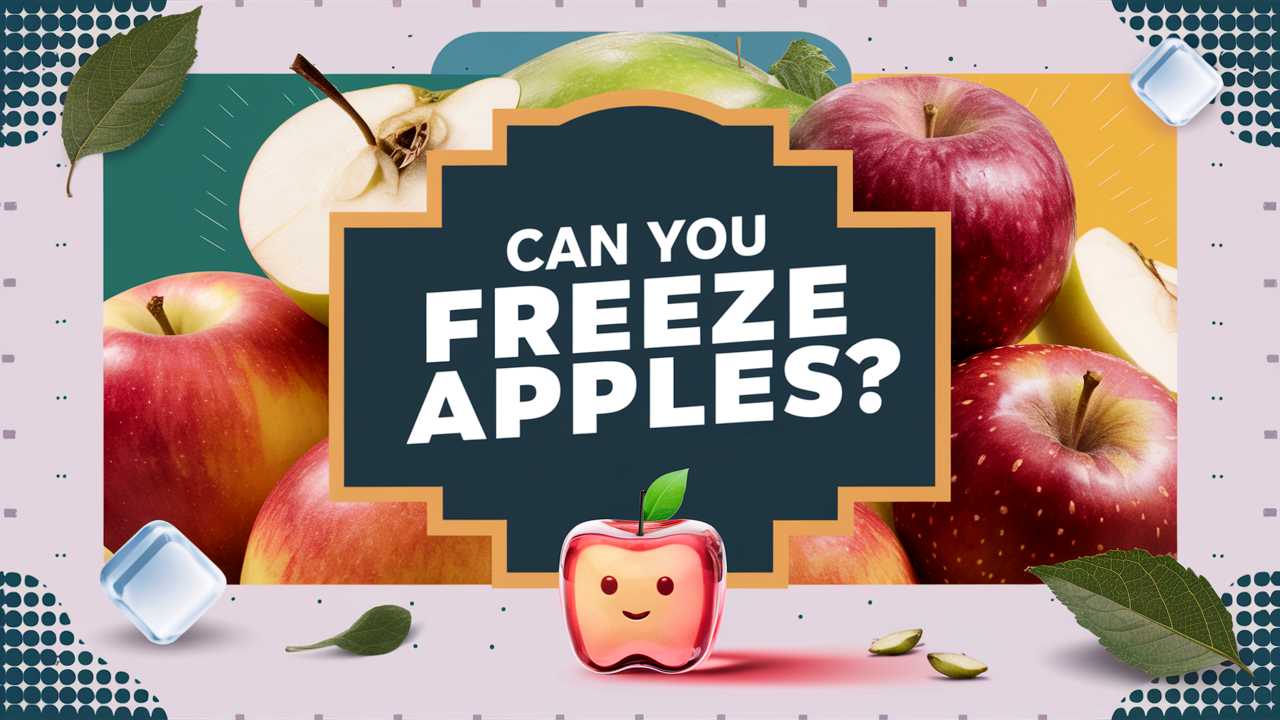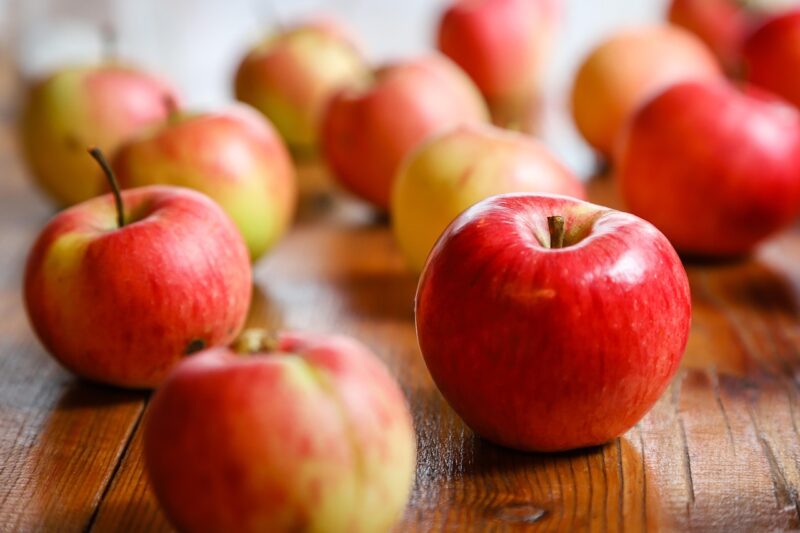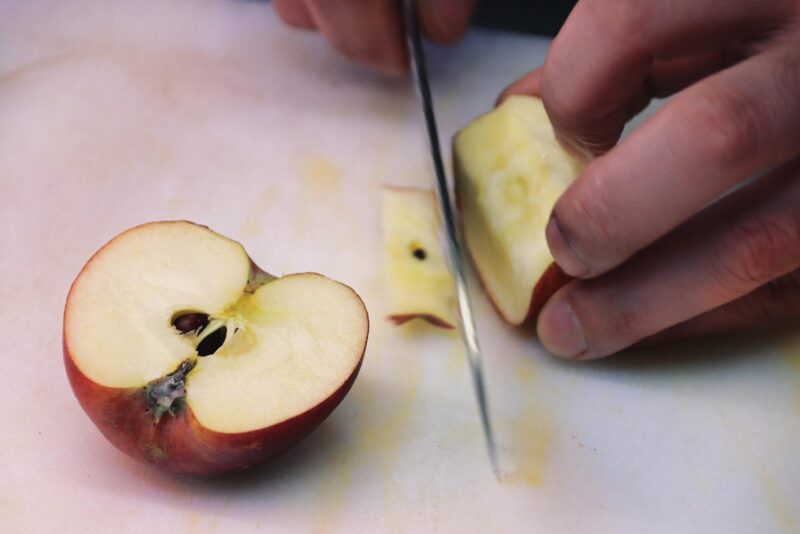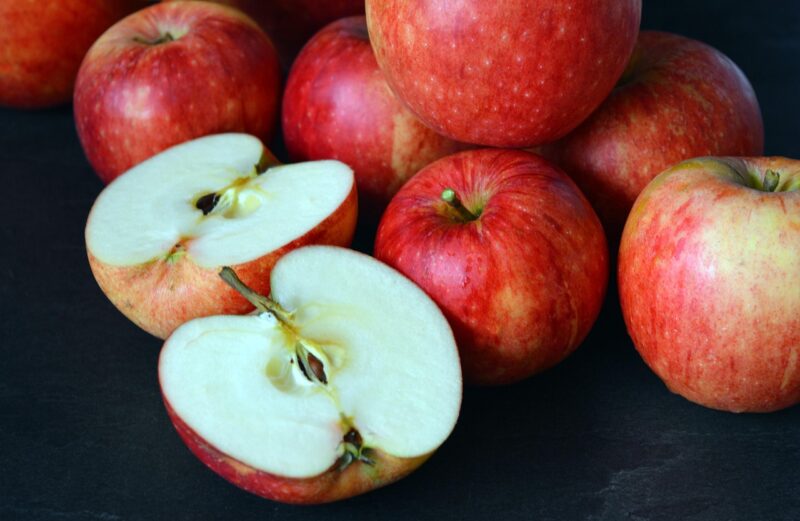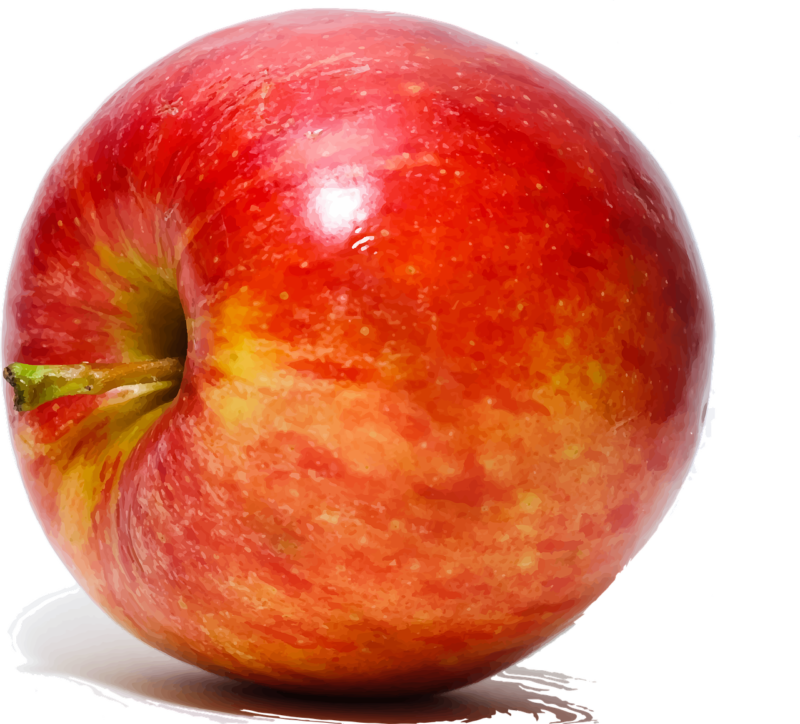As summer wanes and autumn approaches, the orchards overflow with ripe, juicy apples, each one tempting us with its crisp texture and sweet-tart flavor. Whether you’re looking to savor those delightful moments or simply want to save some for later, you might wonder: can you freeze apples?
The simple answer is yes, and this blog post will explore everything you need to know about freezing apples, from preparation to the best uses for frozen apples.
The Benefits of Freezing Apples
Freezing apples can be a game-changer for anyone who loves this versatile fruit. Here are some compelling reasons to consider freezing apples:
1. Preserves Freshness
When you freeze apples shortly after picking or purchasing them, you can lock in that fresh, crisp taste. This is particularly beneficial if you’ve bought more apples than you can consume before they spoil.
2. Convenience for Cooking and Baking
Having frozen apples on hand makes it easy to whip up your favorite desserts or meals. Whether you’re baking an apple pie, making a sauce, or adding them to smoothies, frozen apples offer a quick solution.
3. Reducing Waste
By freezing apples, you can minimize food waste. Instead of letting those beautiful apples rot in your fruit bowl, freezing ensures you can enjoy them long after their prime.
4. Nutritional Retention
Freezing apples shortly after harvest allows you to preserve their nutritional value. Although there may be a slight loss during the freezing process, most nutrients remain intact.
Can You Freeze Apples? The Basics
Absolutely, you can freeze apples! However, a little preparation goes a long way. Apples that are frozen without proper care may turn mushy or lose their flavor.
Preparing Apples for Freezing
Choosing the Right Apples
For freezing, select firm, ripe apples. Varieties like Granny Smith, Honeycrisp, and Fuji freeze well due to their texture and flavor. Avoid overly ripe or bruised apples, as they won’t stand up well to freezing.
How to Freeze Apples
Wash and Peel: Start by washing your apples thoroughly under running water. Peeling is optional, but for pies and sauces, it’s often recommended.
Core and Slice: Remove the core and slice the apples into uniform pieces. You can cut them into wedges, cubes, or rings, depending on your intended use.
Prevent Browning: To keep your apples looking fresh, soak them in a solution of lemon juice and water (1 tablespoon of lemon juice per cup of water) for about 10 minutes. This step helps prevent oxidation, which can cause brown spots.
Blanching (Optional): Blanching apples in boiling water for a minute before freezing can help retain their color and texture, especially if you plan to store them for an extended period. After blanching, immediately transfer the apples to an ice bath to stop the cooking process.
Drying: Pat the apple slices dry to remove excess moisture, which can lead to ice crystals in the freezer.
Flash Freeze: Spread the apple slices out on a baking sheet in a single layer, ensuring they don’t touch. Freeze them for a few hours until solid. This prevents them from clumping together in the freezer.
Storage: Once frozen, transfer the apple slices to airtight freezer bags or containers, removing as much air as possible. Label with the date to keep track of usage.
Storing Time: Properly frozen apples can last up to a year in the freezer, although they are best consumed within six months for optimal flavor.
Best Practices for Freezing Apples
While the steps above create a solid foundation for freezing apples, there are a few best practices to keep in mind:
Choosing the Right Container
Opt for freezer-safe bags or containers that are free of BPA. Vacuum-sealed bags are fantastic for preserving freshness since they remove air, minimizing the risk of freezer burn.
Portion Control
Consider freezing apples in portions that suit your recipes. If you frequently bake apple pies, freeze your apples in bags that contain enough for one pie, making it easy to grab and go whenever a craving strikes.
Labeling Your Freezer Bags
Don’t forget to label your bags with the type of apple, the date you froze them, and how you intend to use them later. This practice will save you time and keep your frozen items organized.
Delicious Uses for Frozen Apples
Once you’ve frozen apples, there are endless possibilities for their use in the kitchen:
1. Baking
Frozen apples shine in baked goods. Simply toss them into your favorite pie, crisp, or apple cake. They retain enough moisture during baking to create a delightful texture.
2. Smoothies
Frozen apple slices make a fantastic addition to smoothies. Blending them while frozen can provide the perfect frosty consistency, enhancing your drink’s flavor without needing added ice.
3. Sauces and Soups
You can add frozen apples directly into sauces or soups as you cook, allowing them to break down and impart sweetness. They’re especially good in savory dishes, adding complexity and depth.
4. Snacks
Frozen apple slices can be eaten straight from the freezer for a refreshing, healthy snack. They also make excellent additions to yogurt or oatmeal.
Possible Pitfalls When Freezing Apples
Though freezing apples can be rewarding, some common mistakes can lead to disappointing results:
Freezing Overripe Apples
Using overripe apples can lead to a mushy texture post-thaw. Always select firm, fresh apples for the best outcomes.
Skipping the Anti-Oxidation Step
Failing to soak apples in lemon juice or another anti-oxidizing agent can result in unappealing brown spots. Ensuring they stay visually appealing enhances your overall dish.
Incorrect Freezing Techniques
Skipping flash freezing can cause apple slices to clump together, making them challenging to use. This step is critical for maintaining individual portion sizes.
Long Storage Times
While frozen apples can last nearly a year, their flavor and texture gradually decline. Aim to use frozen apples within six months for the best results.
Nutritional Profile of Apples
Beyond deliciousness, apples are incredibly nutritious!
1. Rich in Fiber
Apples are an excellent source of dietary fiber, which aids in digestion and helps regulate blood sugar levels. Consuming fiber-rich foods can lead to increased feelings of fullness, aiding in weight management.
2. High in Vitamins and Minerals
Apples are a good source of Vitamin C, which supports a healthy immune system, and contains other essential vitamins and minerals, including Vitamin A, potassium, and flavonoids.
3. Low in Calories
Books could be written about the benefits of apples regarding weight management. With low-calorie content and high fiber, they are perfect for snacking without guilt.
4. Antioxidant Properties
Apples contain beneficial antioxidants that may help reduce the risk of chronic diseases, such as heart disease and diabetes.
Freezing Apples Versus Canning

For those considering long-term preservation, apples can also be canned. However, there are key differences between the two methods:
Time and Effort
Freezing apples is generally quicker and easier than canning, which involves sterilizing jars and cooking the apples thoroughly. If you’re short on time, freezing is your best bet.
Texture and Flavor
Canned apples may have a softer texture compared to frozen ones. If you prefer a crisp bite in your dishes, freezing is the superior choice.
Nutritional Value
Freezing tends to preserve the most nutrients, while canning can lose some vitamin content during the cooking process. Freezing generally requires fewer steps and keeps apples closer to their natural state.
Personal Anecdotes: My Freezing Adventures
Years ago, I embarked on my first adventure in freezing apples after a memorable apple-picking trip with friends. Armed with a bushel of Granny Smiths, I decided to attempt freezing them. The process was simple, but I recall feeling a pang of doubt as I placed my apple slices on the baking sheet. Would they lose their charm?
Fast forward to winter. I pulled out those frozen treasures to bake a pie for a holiday gathering. As the aroma filled my kitchen, I realized that freezing apples had captured more than just their taste; it had preserved the joy of that day spent with friends. Each slice was a memory, turning a simple apple pie into a centerpiece of connection and nostalgia.
Conclusion
So, can you freeze apples? Absolutely! With a few simple steps, you can extend the life of this delightful fruit and enjoy its versatility throughout the year. Whether for baking, cooking, or snacking, frozen apples are a convenient and tasty addition to any kitchen.


